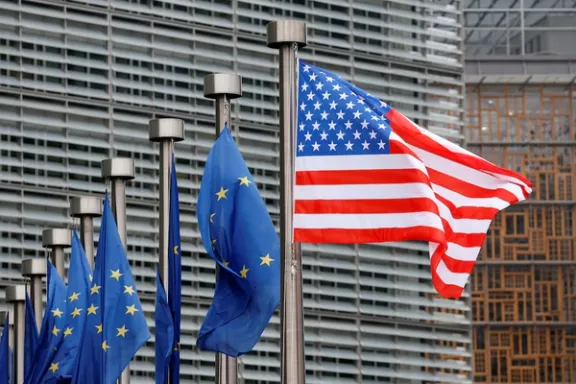US, EU press Iran after Cairo nuclear deal with IAEA

The United States on Wednesday urged Iran to take “immediate and concrete action” to meet its nuclear safeguards obligations, warning the IAEA board may need to act if Tehran fails to cooperate.

The United States on Wednesday urged Iran to take “immediate and concrete action” to meet its nuclear safeguards obligations, warning the IAEA board may need to act if Tehran fails to cooperate.
Howard Solomon, the acting US envoy in Vienna, told the IAEA’s Board of Governors that Iran had “ceased implementing its most basic and fundamental obligations under its safeguards agreement.” He said the board should be “extremely concerned by this near-complete and prolonged loss of required information and access.”
“Iran does not get to pick and choose when and how to implement its legally binding safeguards obligations,” Solomon said. “If Iran’s failure to cooperate with the IAEA continues … this Board will need to be prepared to take further action to hold Iran accountable.”
He noted the agreement announced on Tuesday in Cairo between IAEA chief Rafael Grossi and Iran’s Foreign Minister Abbas Araghchi but stressed: “Immediate and concrete action by Iran is both essential and urgent.”
EU backs Grossi but demands safeguards access
The European Union also welcomed the Cairo accord but said Iran must now deliver full cooperation. “We take positive note of the DG’s statement that this is a step in the right direction. We look forward to further details and to the immediate implementation of the agreement,” the EU said in a statement.
It warned that “the proliferation risk remains profound and urgent,” citing IAEA data that Iran’s stockpile of uranium enriched up to 60% had exceeded 440 kg — “more than 10 significant quantities.”
“We call on Iran to immediately enable the full resumption of the Agency’s in-field verification activities, the conduct of which must be in line with the standard safeguards practice and is therefore non-negotiable,” the EU said.
E3 warn of sanctions clock
The remarks came after France, Germany and Britain told the agency they were “alarmed” by the lack of clarity on Iran’s near-bomb-grade uranium stockpile. “It is not enough for Iran to make promises for tomorrow, we need to see evidence from Iran today,” the E3 said in an open letter.
The three countries last month triggered the UN snapback mechanism, which could restore global sanctions at the end of September unless a new Security Council resolution extends relief.
Grossi described the Cairo agreement as “a step in the right direction,” saying it covered inspections at all declared facilities, including those damaged in June’s strikes. Araghchi, however, said the deal “does not currently allow inspectors into nuclear sites,” and access would be defined only in later talks.